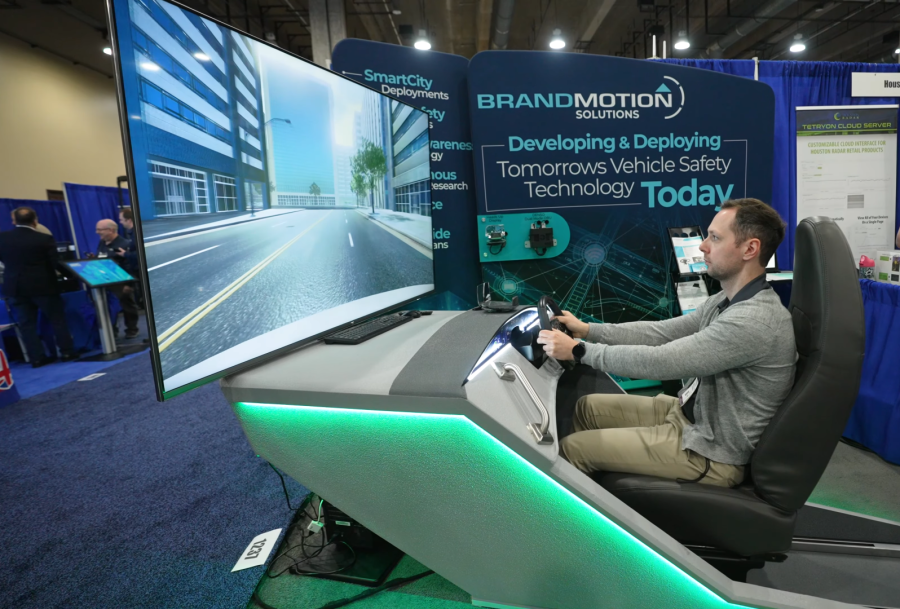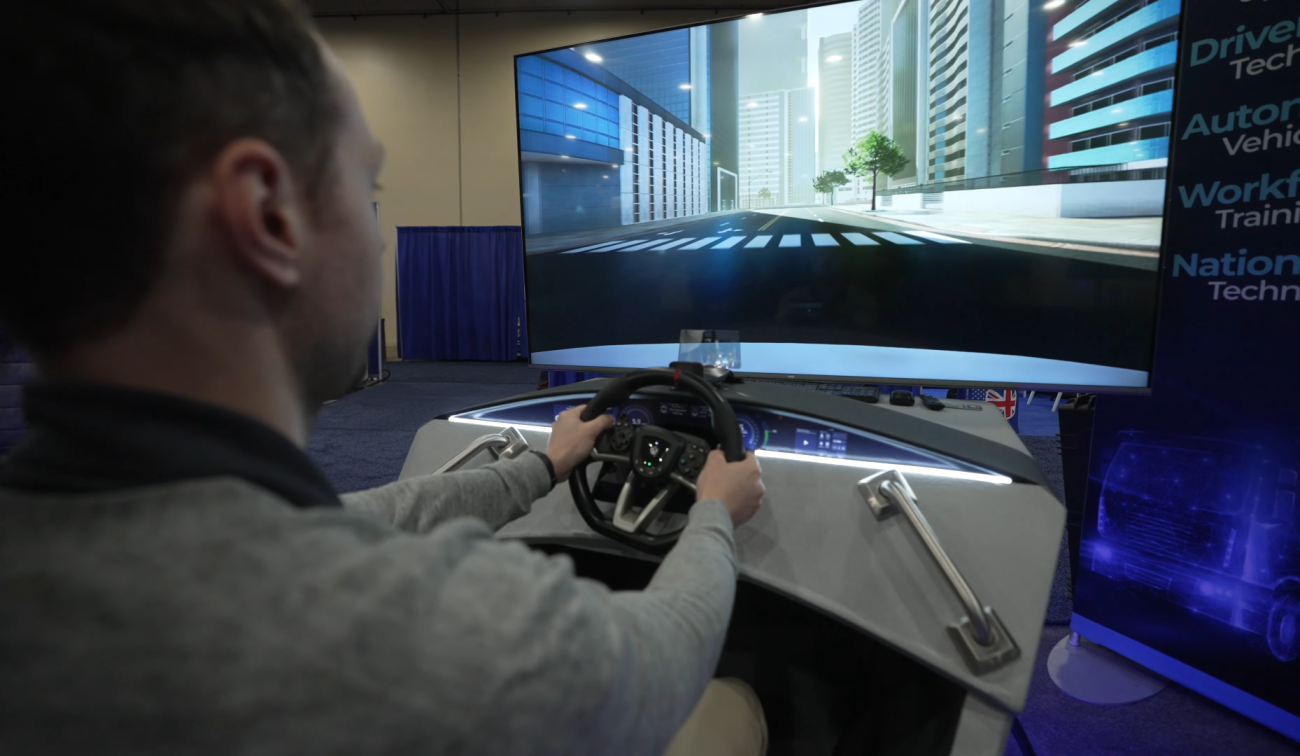City of Southfield partners with RCOC, LTU and P3Mobility to launch new road safety technology
July 11, 2024
Public demonstrations provided July 16 at LTU rollout event
The Road Commission for Oakland County (RCOC) is spearheading a transformative project to deploy and operate advanced vehicle technology throughout Oakland County. The project, “Leading in Sustainable Safety with Technology,” is funded through a U.S. Department of Transportation (USDOT) grant with the mission to build a model for the deployment of safety-critical communication technology nationwide.
P3Mobility, the lead private partner on the project, will provide a public demonstration of this new road safety technology that is being piloted in Southfield and Oakland County on Tuesday, July 16at Lawrence Technological University (LTU) Building #5 (Buell Building in the atrium), 21000 Ten Mile Road in Southfield. The public open house will take place from 1-4 p.m. to coincide with the Michigan Department of Transportation (MDOT) Transportation Career Day hosted by LTU earlier that day.
P3Mobility partners with a variety of organizations from academia, industry, and government to address the complex issues of our current transportation system. “We believe that the most impactful and effective way to improve safety, mobility, and sustainability is through Connected Vehicle-to-Everything (V2X) technology,” stated Erin Milligan, P3Mobility Founder and Chief Executive Officer. “We also recognize the complexity that goes into deploying this technology, from high capital costs, technical knowledge, and policy decisions. P3Mobility partners with local governments and mobility companies to expedite the adoption of V2X technology. We provide solutions that facilitate financial transactions and revenue generation as well as consulting and advisory services for planning, developing, and operating a V2X ecosystem.”
What is this technology?
The connected vehicle technology to be deployed in Oakland County is a form of communications technology that provides a warning about potential hazards (e.g. vehicles, bicyclists, pedestrians, deer, etc.), regardless of whether they are in view. In comparison, a vehicle that relies on the more common line-of-sight sensors that is currently available in many vehicles is unable to detect the presence of another vehicle that is not directly visible, let alone determine the other vehicle’s direction, speed, operational status, etc. Connected vehicle technology provides information upon which drivers can act to prevent a crash.
The implementation of connected vehicle technology in Oakland County is first and foremost about delivering increased levels of safety to the community. Studies have shown that thousands of crashes could be avoided every year if this technology were deployed across the U.S. In addition, this technology can help to improve congestion and reduce emissions by making available various smart road services, such as extended green lights. These improvements could also reduce emergency response times. Finally, this technology should help reduce insurance costs for those drivers who choose to equip their vehicles. Since the technology helps to keep the driver safe, the vehicle will have reduced chances of being in a crash situation.
How will this technology impact me?
The most immediate and important answer to how this technology will impact Oakland County residents and businesses is that it will make Oakland County roads safer by reducing crashes that cause injury and death. Nationwide, it is estimated that this technology could save thousands of lives per year. Drivers will be safer. Pedestrians will be safer. Whole communities will be safer. Fewer crashes will mean traffic will flow more smoothly, and there will be fewer delays. Driving on safer streets should also lower car insurance costs for Oakland County residents.
“One of the biggest challenges of connected vehicle technology is helping people understand what it is, given the complexity of how it works,” added Tom Tracz, P3Mobility Program Manager. “The general public might not be interested in the technical nuances or inner workings; however, they would greatly benefit from information to help them understand that it improves safety.”
In order to work, this technology must first be installed on roads and in vehicles. RCOC is working to install this technology at intersections throughout the county; however, most residents won’t have the technology in their vehicles for a number of years. At this time, the in-vehicle technology provides information upon which drivers can act to prevent a crash. By the time most people have the technology in their vehicles, the technology will likely have progressed to a point where the vehicle itself reacts to the information to avoid a crash. For those with the technology in their vehicles and a related insurance policy, it should lower car insurance costs.
About the city of Southfield
The City of Southfield is one of the premier business and residential addresses in Michigan. Located in Oakland County, Southfield is home to more than 76,000 residents and over 100 “Fortune 500” companies. With a daytime population nearing 175,000 (prepandemic), over 27 million square feet of office space and more than seven million square feet of retail and industrial space – Southfield is truly Michigan’s undisputed business center. Residents and businesses alike come to Southfield for its central location, excellent city services and easy access to all of southeastern Michigan. For more information, call (248) 796-5000 or visit www.cityofsouthfield.com.
About the Road Commission for Oakland County
The Road Commission for Oakland County (RCOC) is the county-level road agency in Oakland County, Michigan. RCOC maintains more than 2,700 miles of county roads, over 230 miles of state highways and approximately 1,500 county, city and state traffic signals in Oakland County. RCOC is also leading the way in developing "smart" traffic signals -- the FAST-TRAC system -- that employ state-of-the-art computer and communications technologies to improve traffic flow, decrease travel time, enhance safety and reduce the vehicle tailpipe emissions that are characteristic of stop-and-go driving.
About P3Mobility
P3Mobility provides Connected Vehicle and Smart Road Technology solutions for increased safety, mobility, and sustainability. P3Mobility partners with local governments and mobility companies to expedite the adoption of V2X technology. P3Mobility competencies range from providing solutions that facilitate financial transactions and revenue generation to consulting and advisory services for planning, developing, and operating a V2X ecosystem.
About Brandmotion
Brandmotion is an Oakland County based company hailing from Johnson Controls, Inc in 2006. They are a recognized provider of aftermarket applications of OEM level technology with a portfolio of innovative safety solutions. Brandmotion created the vehicle simulator being used at this event.
About Lawrence Technological University
Lawrence Technological University (LTU) is a a top-ranked private university in Southfield, Michigan that offers programs in architecture, design, arts, sciences, business, information technology, engineering and health sciences. It was founded in 1932 in Highland Park, Michigan, as the Lawrence Institute of Technology (LIT) by Russell E. Lawrence. The university moved to Southfield in 1955 and has since expanded to 107 acres where it offers associate, undergraduate, master's, and doctoral programs through its five colleges.
For more general information, contact Southfield Business Development at (248) 796-4120 or view the map at https://www.ltu.edu/about/map.

